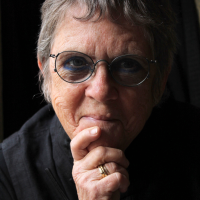Maybe you can relate:
One day (or moment) you’re feeling okay. You think, “I’m doing a great job of handling this covid stuff,” and you seem to be in control.
Then, boom.
The next day (or perhaps even the next moment), you find yourself quite nervous, or sad, or anxious, or having another one of those wild food cravings.
Or maybe you just end up numbing yourself by watching three hours of television that you couldn’t even remember the moment it’s done.
You’re not alone.
We’ve all been there, perhaps even more recently than we might care to admit.
As a writer by occupation, and lifelong student of mindfulness and loving-kindness, I’ve discovered tools can be combined (like a fine recipe) to cope with the roller coaster of emotions and experiences we face during the covid crisis.
Here are three tools that you can use right now that won’t cost you a penny:
1. Journaling.
Write down what you are feeling and thinking so you can better understand your experience.
Many people write for therapeutic purposes; they wake up first thing in the morning, and they write what comes to their consciousness right away.
To write our experiences, and gain a better understanding, can be paramount. Documenting what we are going through helps us humans make sense of it later. If we do not write down our experiences, there is a good chance that we will forget altogether.
2. Morning meditation.
Morning meditation is part of my mindfulness practice.
The thing about meditation is that when you gently practice staying in the present moment, you come to find that you’re really okay. Because the present moment keeps evolving into another present moment. And what you see over time, and with practice, is the amazing impermanence of everything.
(I like to meditate “on the cushion” and also when I’m out in the world and even at home with my dog, Peaches, and my cats, Jackson and Bella.) Consider being out for a walk and seeing the way a flower looks one day, in that first moment. Then, you look at it again the next day, and it looks different.
If you are able to really embrace this idea of impermanence, then ideally, you suffer less because there’s nothing to hold on to. (That means we can stop taking things personally because they’re just things that are changing all the time.)
And to do that, we have the opportunity to become much bigger than we think we are in our hearts and in our minds and allow for everything to happen—and not feel like we have to fix it.
3. Embrace the idea of impermanence.
To do this successfully takes practice because everything keeps repeating itself. That’s why it’s called a “practice” and not a “perfect.” Especially now, given the circumstances so many of us are faced with, isolating ourselves and the monotony of recent days. So, my mindfulness practice anchors me in this state of “this is the way it is, at this moment.”
I’m also being mindful by taking care of myself, staying in touch with the people I love, doing things that are important to me, and maybe to the world. I’m doing all I can.
And yes, I’m going to be sad sometimes—that is going to be a part of it. To think we can get through any of this without being sad (or angry, or any of the other human emotions) is unrealistic.
But the point is, in what the Buddha teaches, there’s nothing wrong with feeling all your emotions (even the yucky ones). And although it doesn’t feel good to be angry, and it doesn’t feel good to be sad, those emotions are a part of our life and our life journey.
Then we make a full circle, back to journaling…
When we document our journey by writing it down along the way, even if it doesn’t make much sense at the time, it can be helpful in sorting out our experience later on, when we’ve come out on the other side.
The above mindfulness and loving-kindness practices can provide calm, clarity, and a sense of peace to support us all in navigating the challenging times ahead.
What strategies have helped you navigate our current situation? Leave me a comment, I’d love to hear from you!
~












Read 1 comment and reply